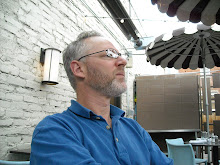Never was this more evident than one gorgeous weekend day when I was soloing over New York City. Usually I preferred to head west, over the hills and lakes of New Jersey and Pennsylvania, or even better, north over the Hudson. I enjoyed looking at the greenery and steepled villages on the riverbanks, and I liked the fact that, aside from avoiding West Point, the airspace was uncomplicated.
Recognizing that I needed more navigation practice, on this day I chose instead to go south and east, around the Statue of Liberty and over Brooklyn and Queens. Or... was it the Bronx? Yonkers? With the world's most famous landmarks to guide me, how on earth could I get lost? But I did.
I initiated a procedure known as the Four C's: Climb, Confess, Communicate, Comply. Climbing almost certainly put me in the airspace controlled by JFK or LaGuardia, subjecting me to huge penalties. But working a checklist is about the only thing you can do to prevent disorientation from evolving into panic so that's what I did. Then I swallowed my pride and made the hardest radio call ever:
"Teterboro, student pilot. Would you give me a vector back to the field?"
It isn't required to identify oneself as a student pilot, and I usually avoided doing so, but in this case I thought it might be wise to subtly convey to the controller -- and the dozens of other pilots on the same frequency -- that there was someone potentially dangerous in the sky.
The controller's response? "Return to the field."
I vomited my pride in order to swallow it again and replied: "Student pilot. I'm lost. Please give me a vector back to the field."
Again: "Return to the field." What the hell was going on? My transponder was working so the controller knew my location; why not just tell me, Turn left 20 degrees, descend to 5,000 feet, report when field is in sight -- or whatever the case may have been?
Instead the exchange merely distracted me further from my objective. I flew around, quite aimlessly, until I recognized something and joined the landing pattern. There was no FAA officer waiting to issue me a ticket when I returned my rented plane. No summons came in the mail. Nobody said a thing. I had just discovered a dirty secret of aviation: that the typical suburban street is better controlled than our airspace.
The episode flashed back to me with yesterday's news that a Teterboro controller has been suspended for having an "apparently inappropriate" conversation with his girlfriend during last week's fatal midair collision over the Hudson. I absolutely believe the recent research studies, cited by proponents of banning phone use while driving, showing that attempting to converse with somebody who is not present is so taxing to the brain that it leaves little energy for anything else. It isn't hard to imagine that the controller had no idea he was being negligent when he decided to have a little chit-chat. Neither do the SUV drivers who think everything's going fine until they hear a thump and find a little girl under their tires.
The habit of being constantly in touch is now so deeply ingrained in our culture that making personal calls at work -- even hazardous work -- has come to seem like normal behavior. In states where personal liberties are considered more consequential than accidental deaths, no bans will ever be forthcoming. They wouldn't work anyway. It's up to each of us to find some time each day to push that red button, push it hard, and make sure the phone is truly and deeply off.

No comments:
Post a Comment